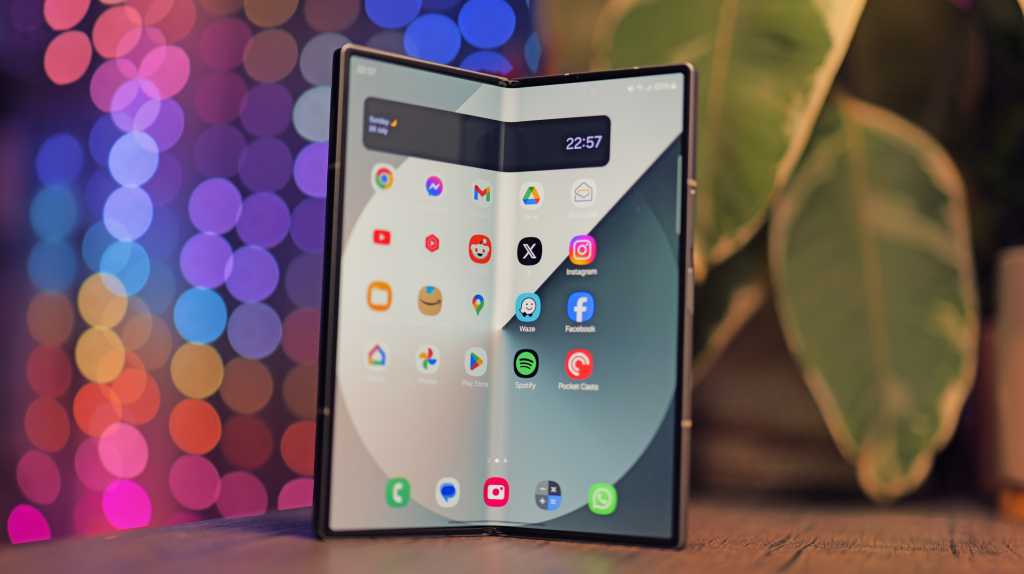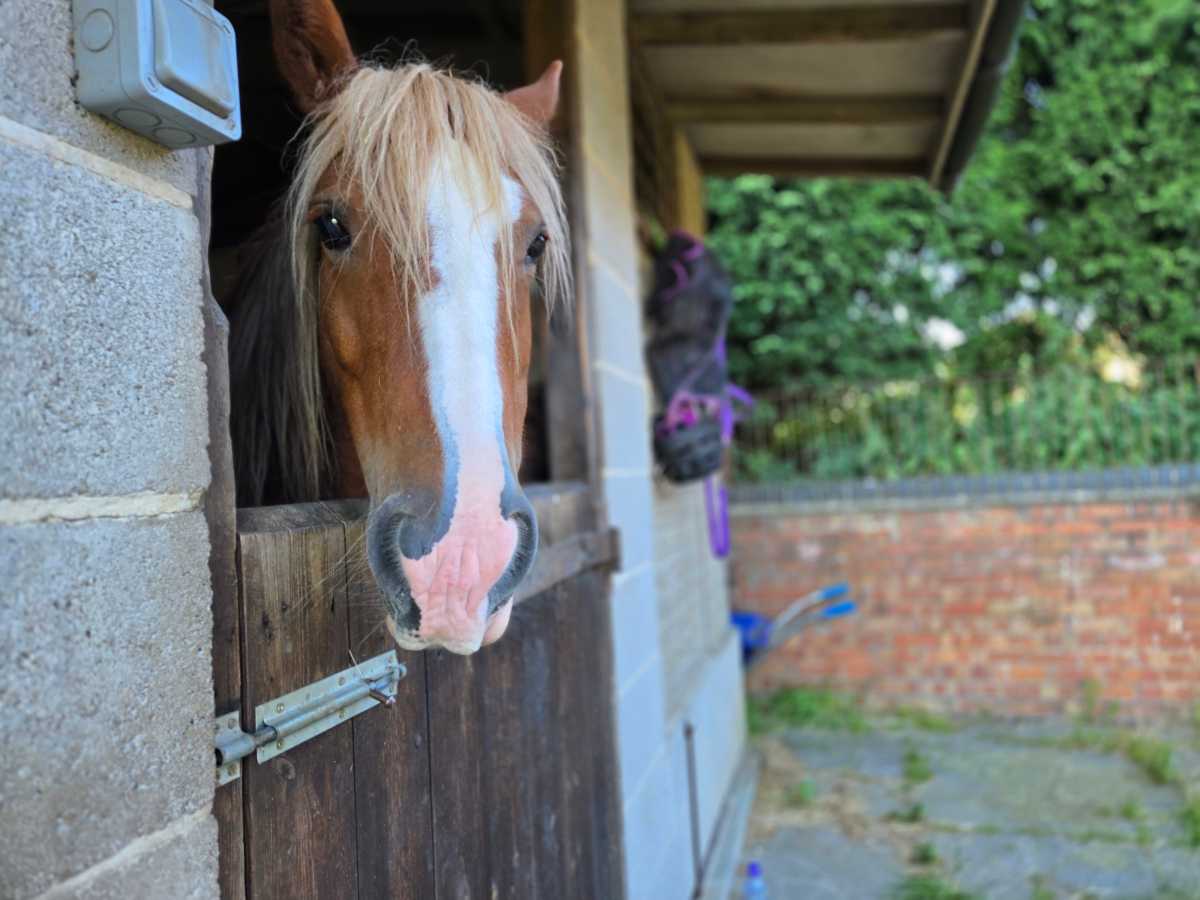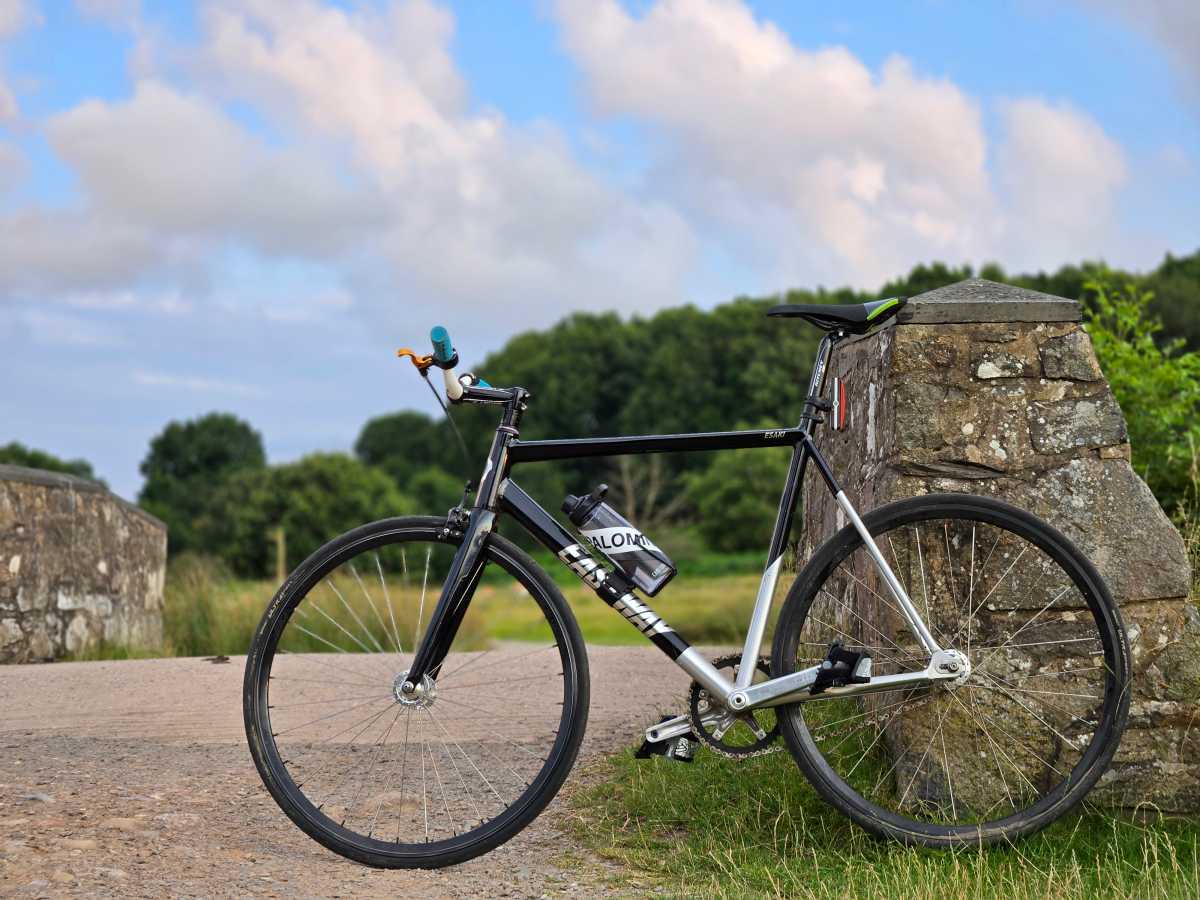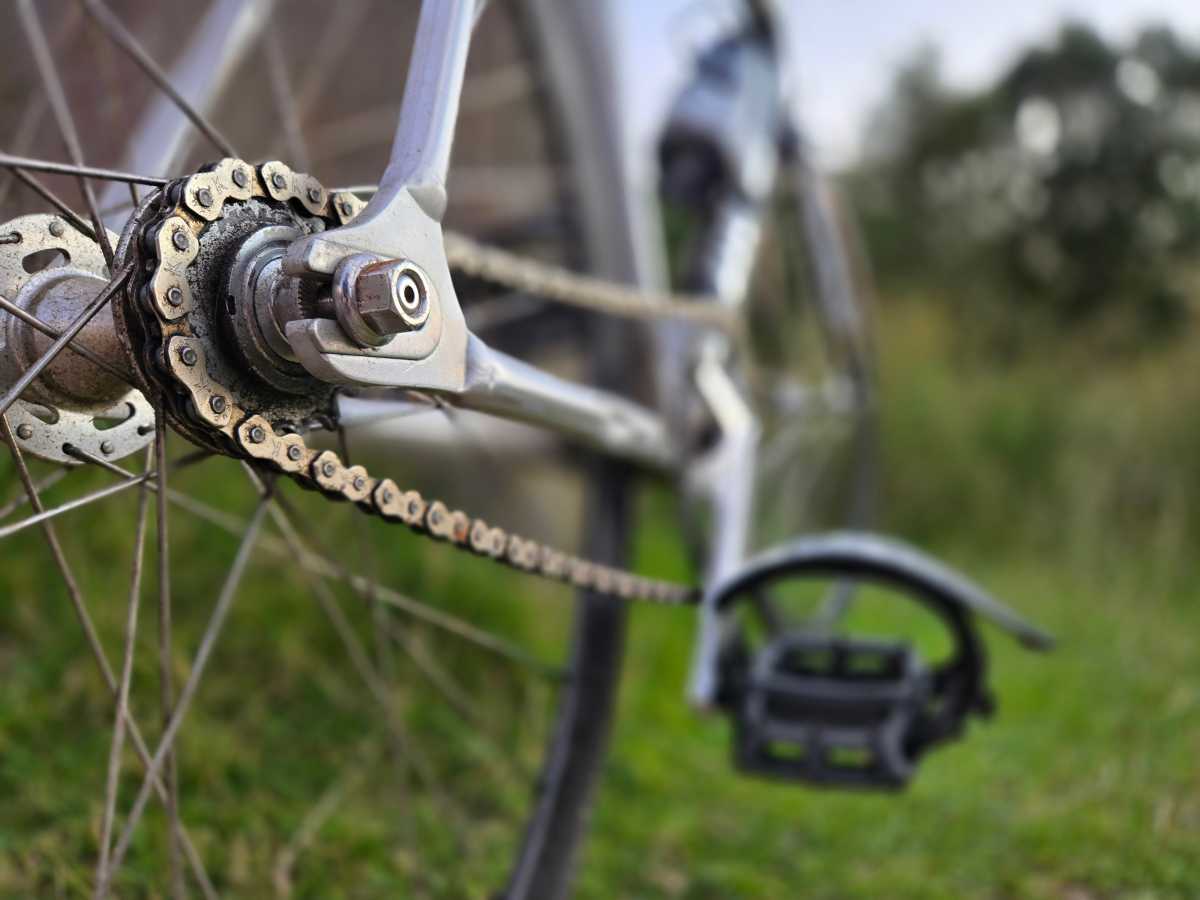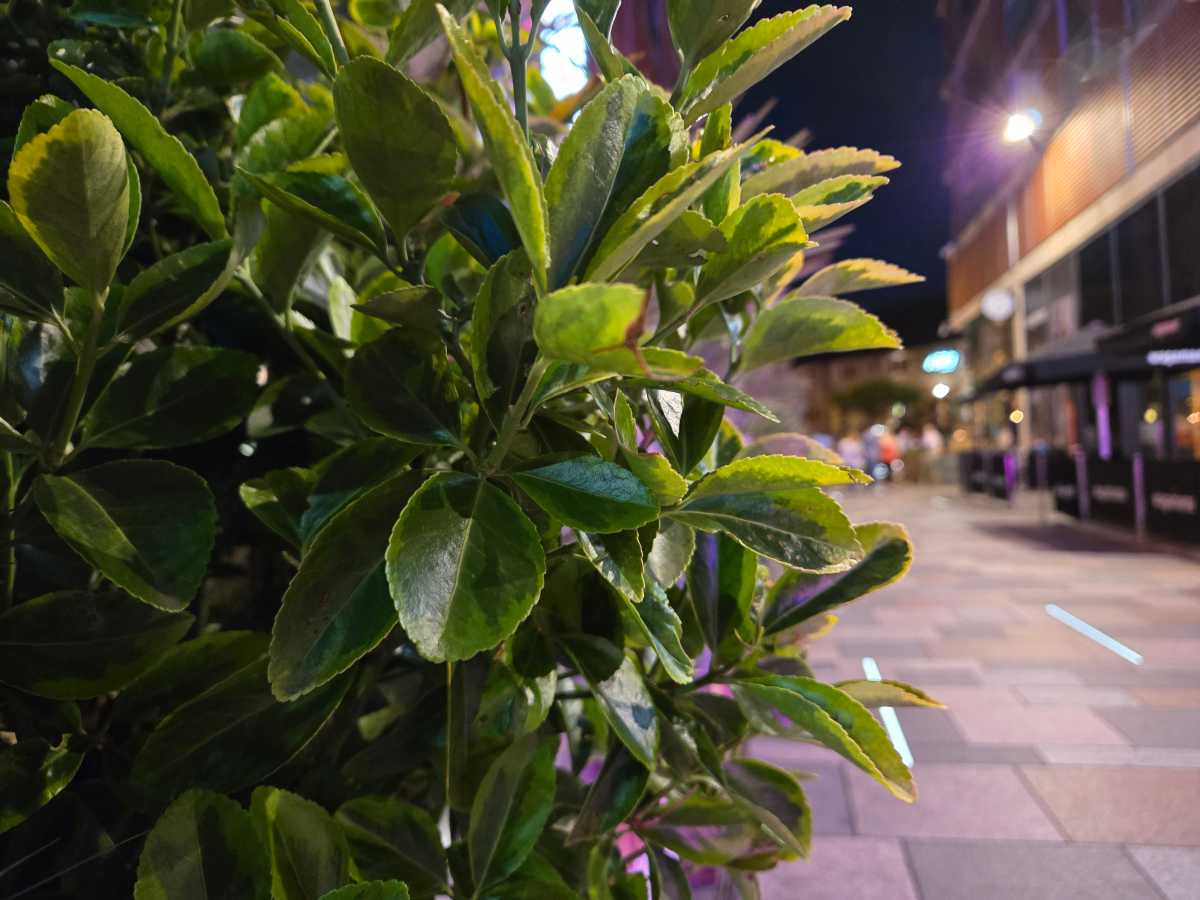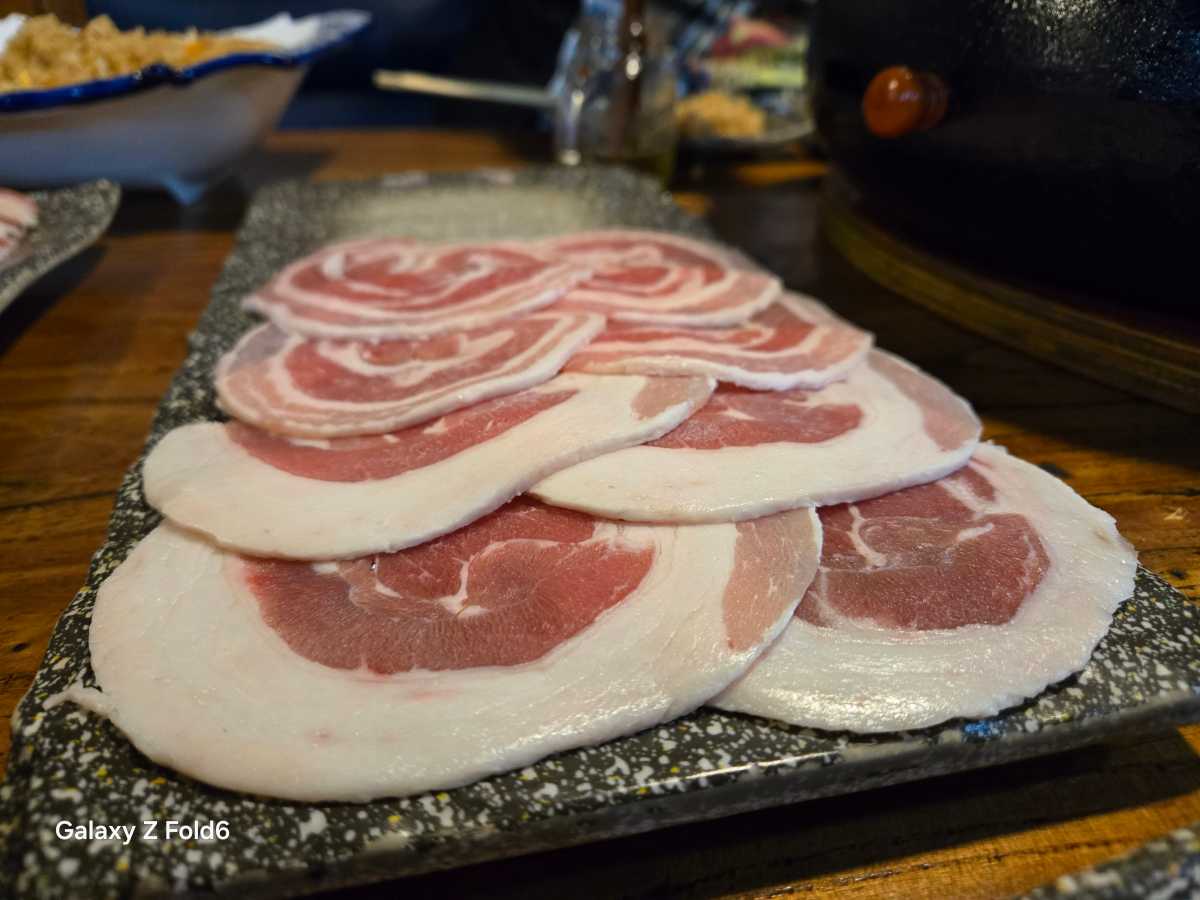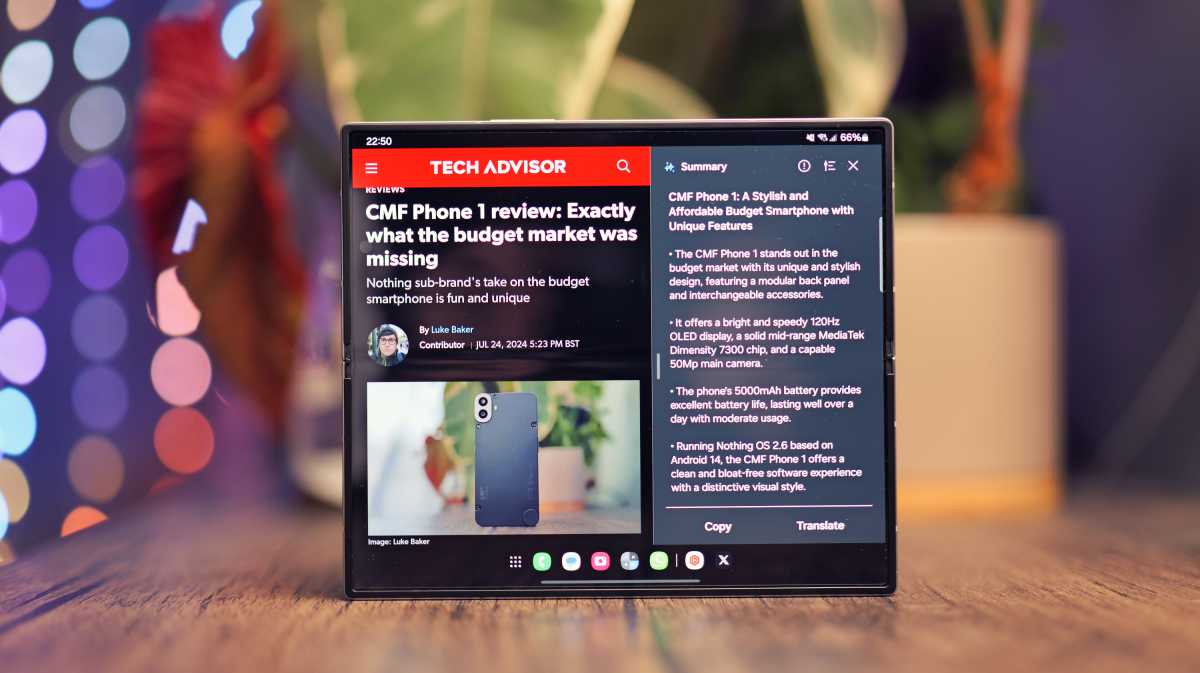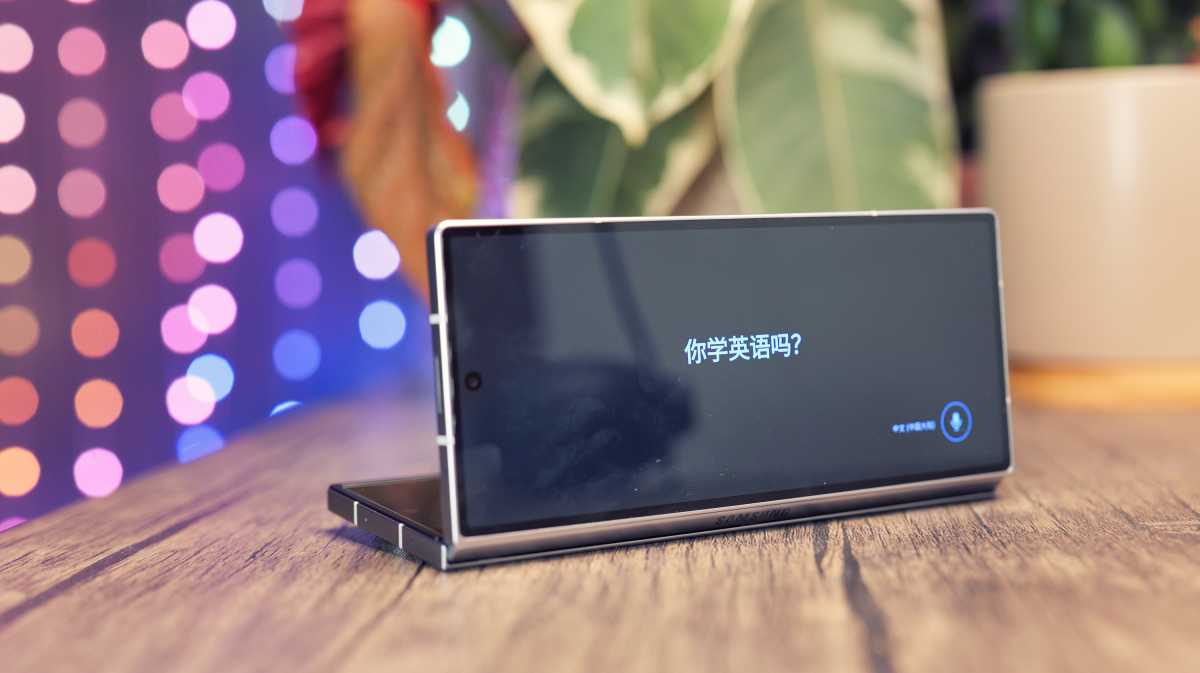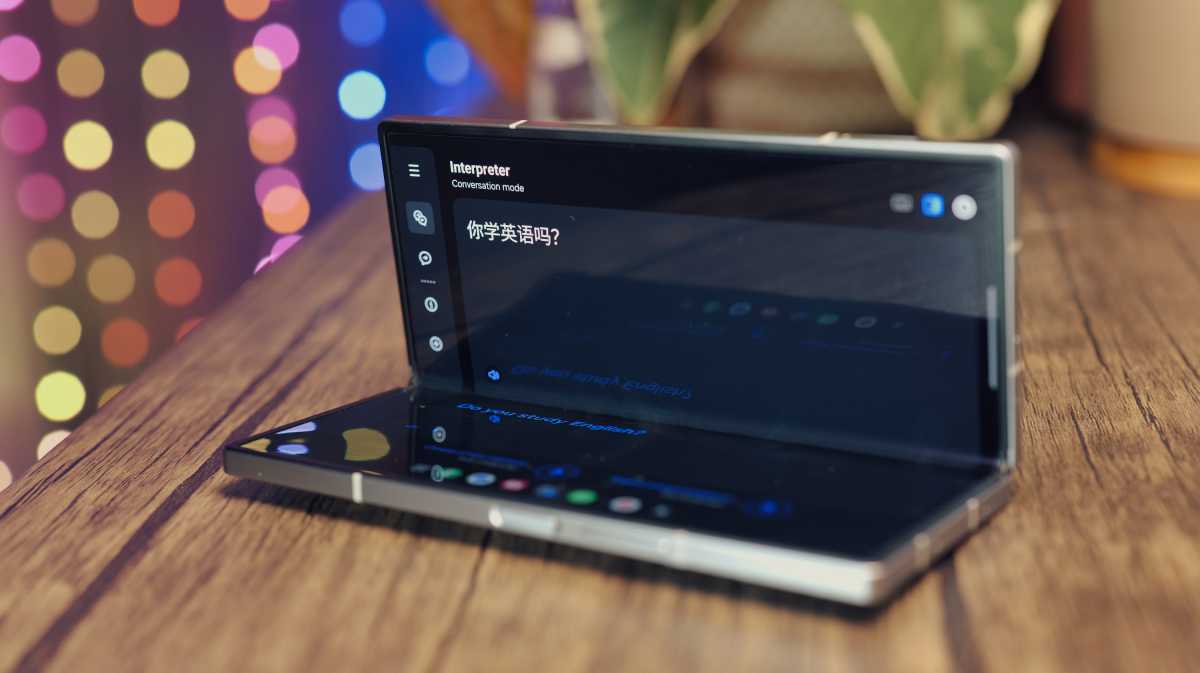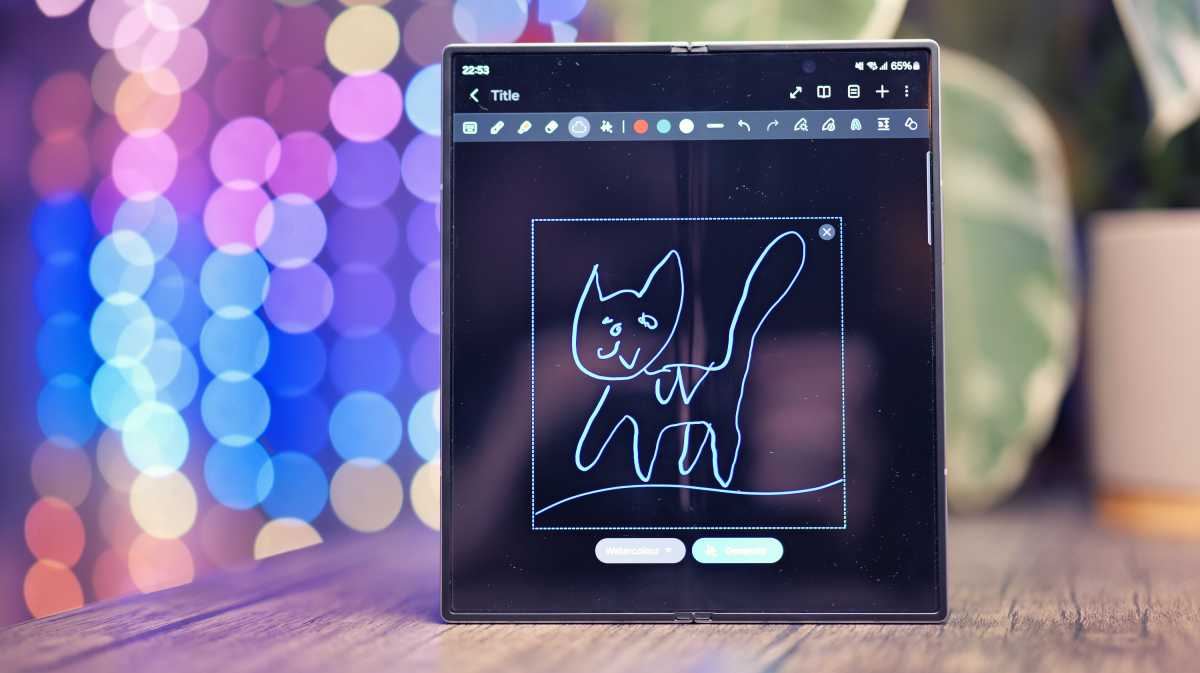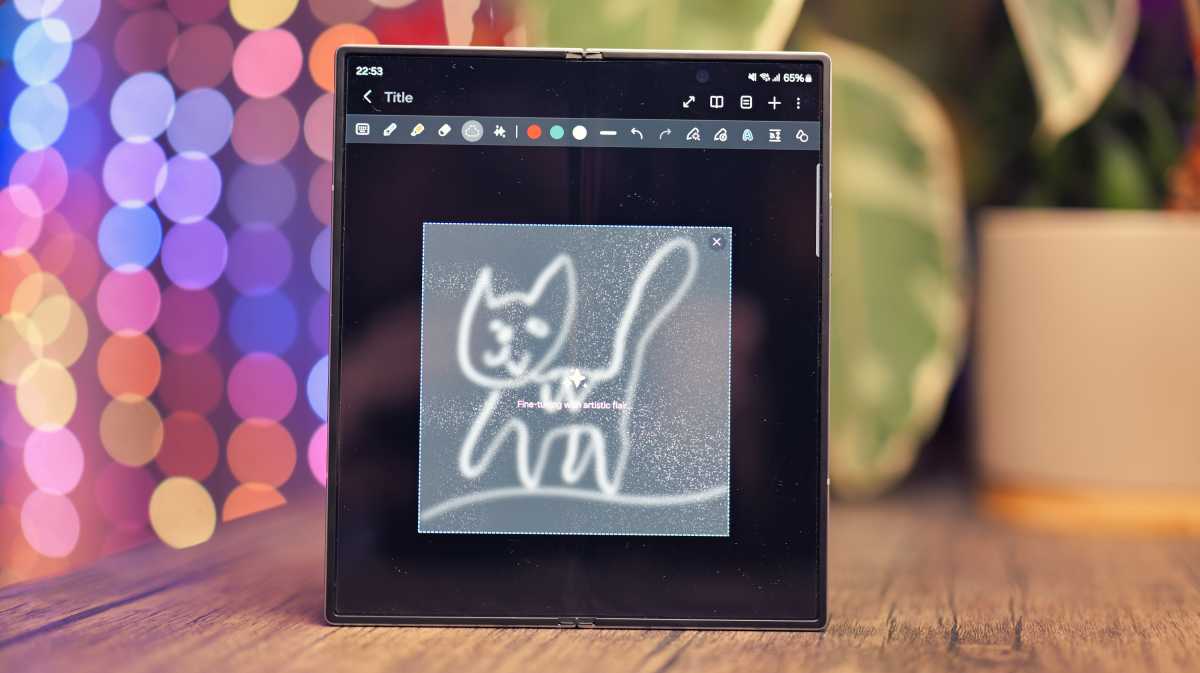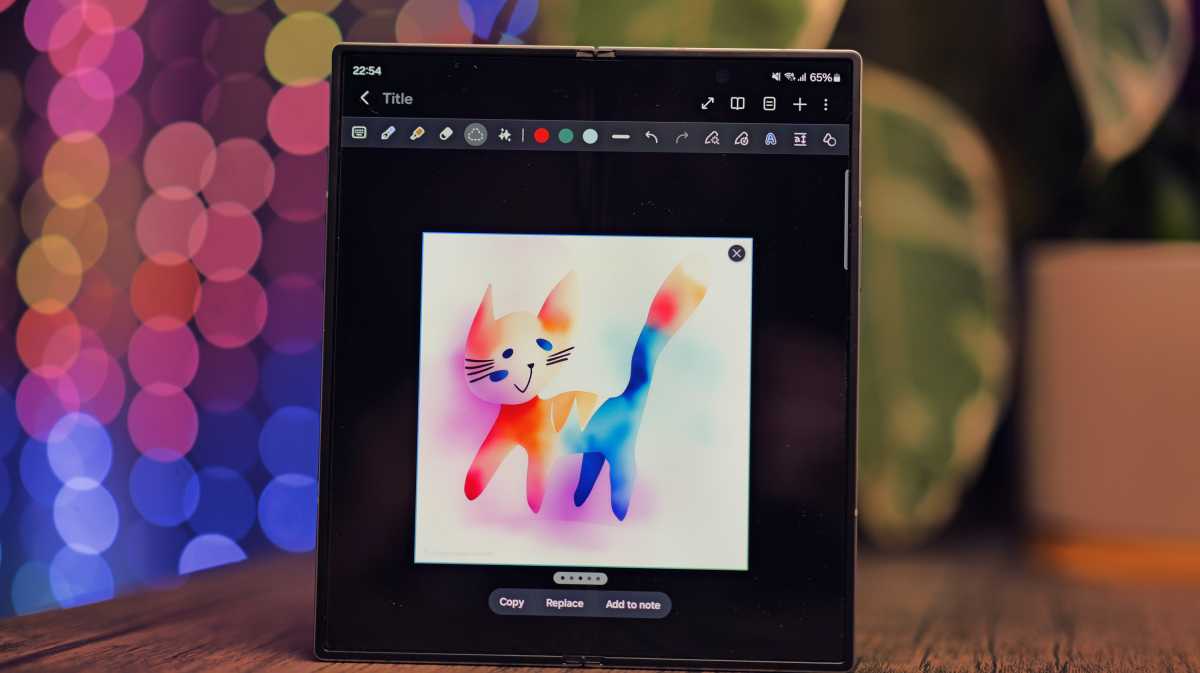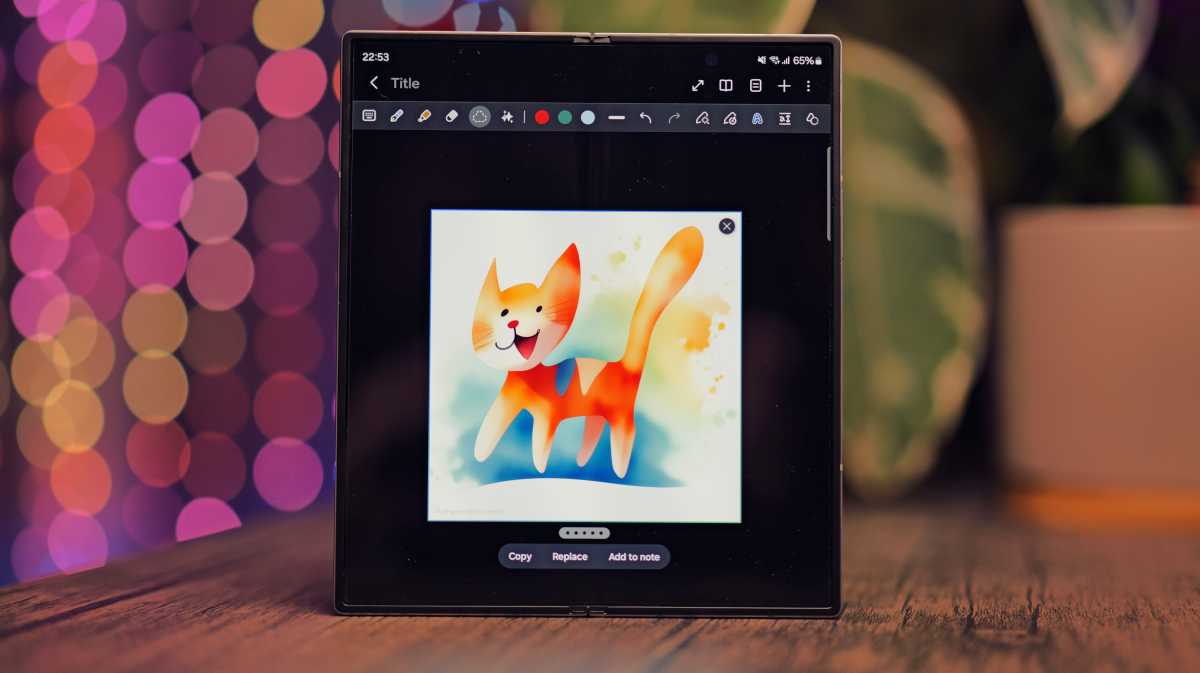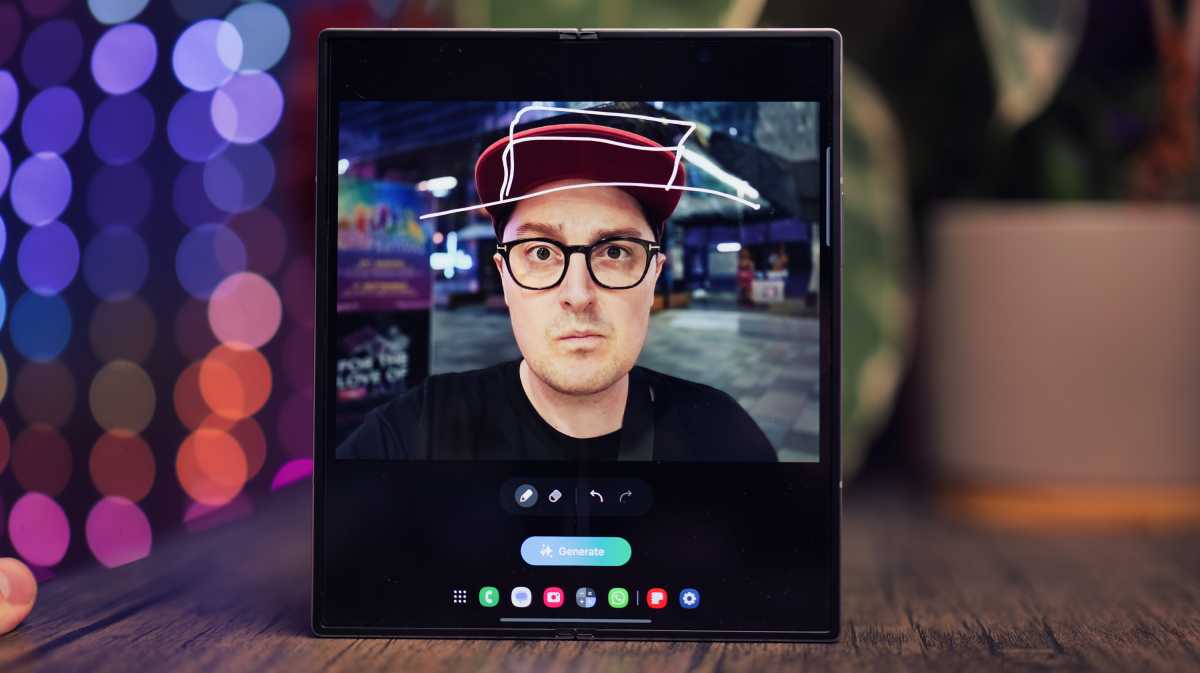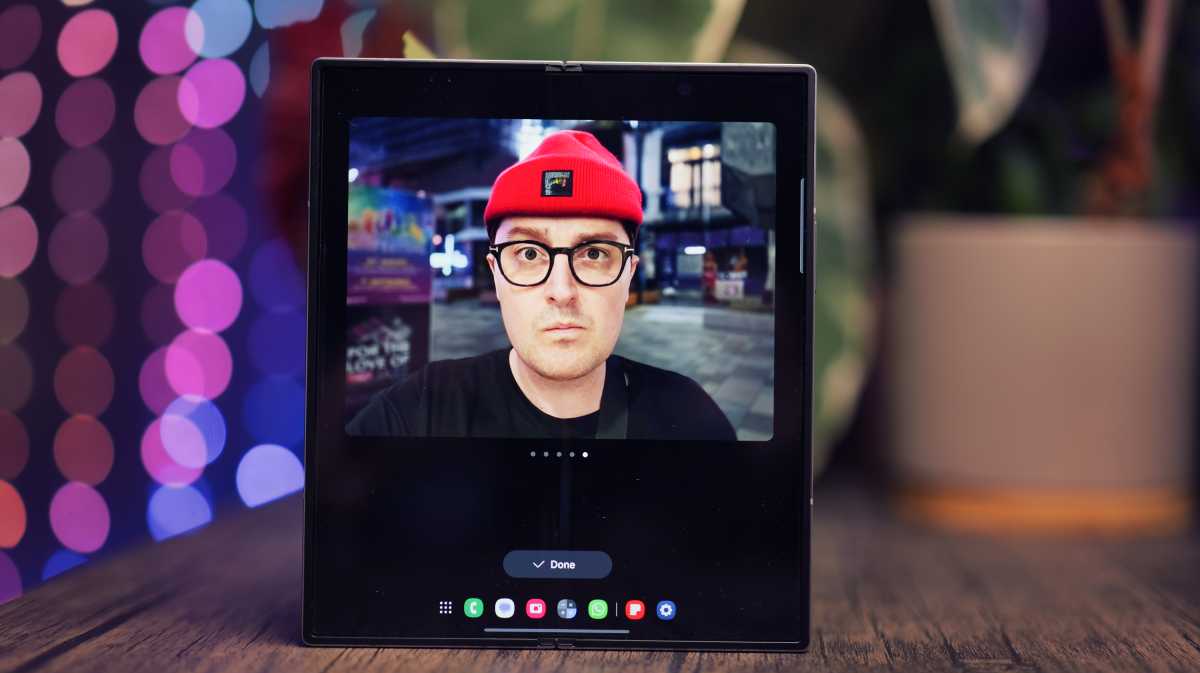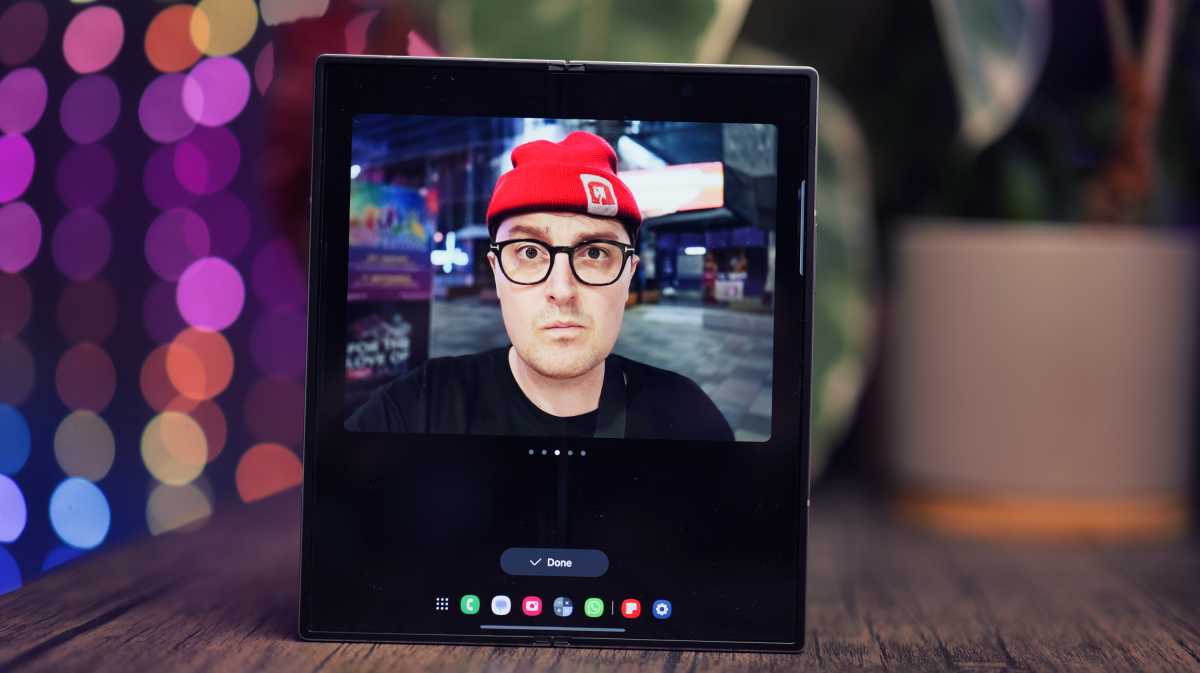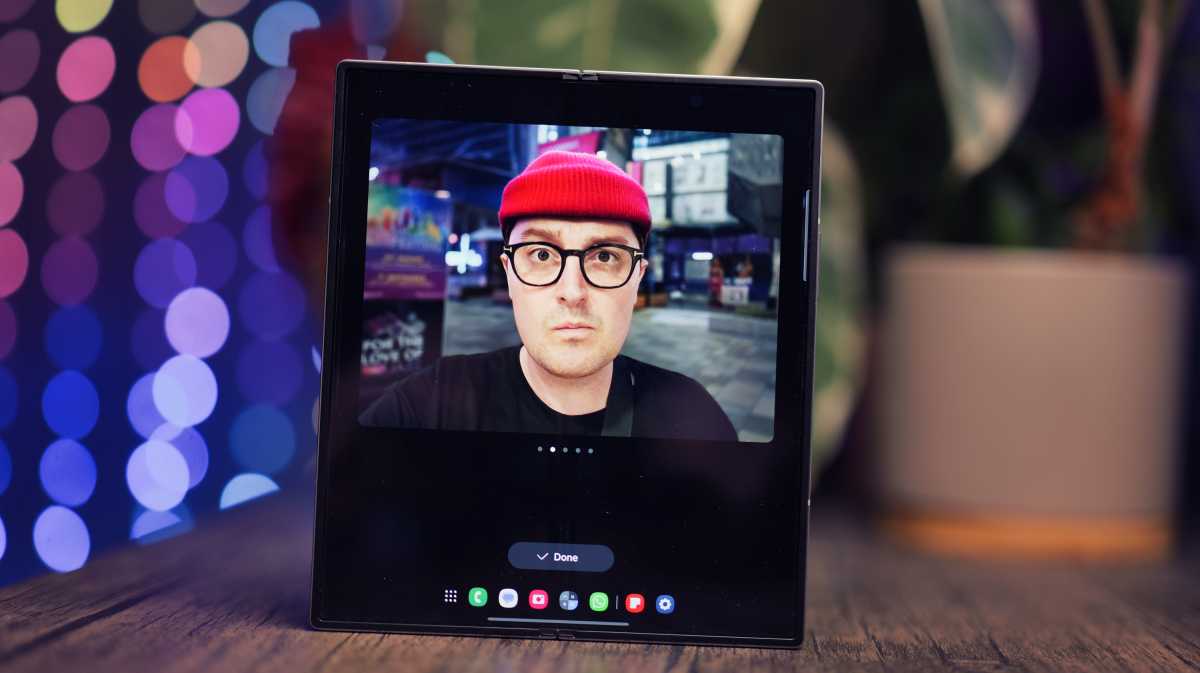Expert's Rating
Pros
- Wider cover display
- Brighter panels inside and out
- Thinner and lighter design
- Improved aesthetics
- New Galaxy AI features
Cons
- Still very similar to Z Fold 5
- Even more expensive
- Crease is bigger than the competition
Our Verdict
The Samsung Galaxy Z Fold 6 is a very iterative update – a lot of the hardware remains unchanged – but the improvements that are here serve to make the device better. The result is Samsung’s most polished and refined foldable to date. It might not be exciting, but it’s still a wonderful phone.
Best Prices Today: Samsung Galaxy Z Fold 6
Samsung’s 2024 Galaxy Z devices have landed, and while the Galaxy Z Flip 6 got some pretty significant hardware upgrades, the changes to the Z Fold 6 are far more subtle. This year, the focus is on refinement, and of course, Galaxy AI.
This year, we get a wider cover display, slimmer bezels, and a slimmer and lighter design refresh, but that’s about it on the hardware front. The rest of the features are software-based, and thus likely to make their way to other Samsung Galaxy devices in the future.
But with a £50/$100 price increase, plus stiff competition from Chinese manufacturers like Xiaomi, Honor and Vivo, has Samsung done enough to maintain its dominance as the most popular large-screen foldable? I’ve been living with the Z Fold 6 for just over a week to find out – here’s everything I learned.
Design & Build
- Wider cover display
- Matt finish with squared-off edges
- 239g, IP48 rated
The most noticeable hardware change is with the physical dimensions of the Z Fold 6. The cover display is now shorter and wider, to make it feel more like a typical candybar smartphone when closed.
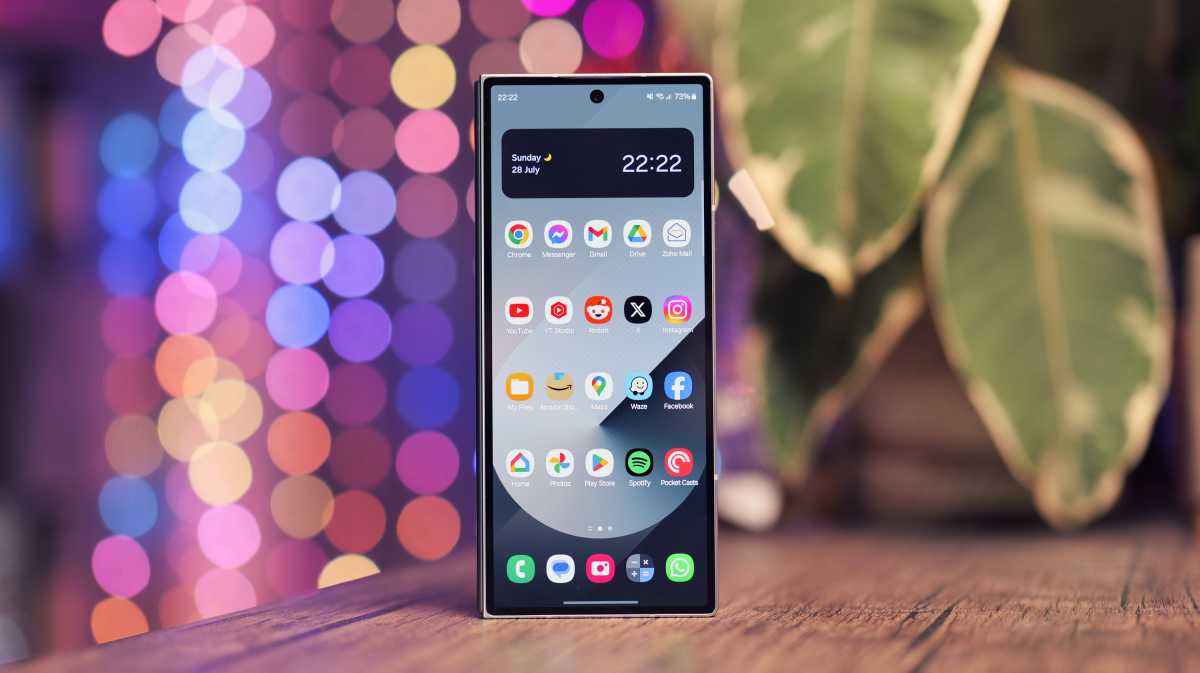
Luke Baker
It’s certainly a change for the better, and I found it much easier to type on this newly-widened display. However, it has only grown by about a millimetre, and the display is still significantly narrower than the competition.
It feels like a phone that’s designed to be used unfolded the majority of the time, whereas you could exclusively use the cover display of a phone like the Honor Magic V2 and not feel like you’re making a major compromise. It’s not a bad thing, just seems like a different school of thought.
The phone has adopted sharper corners this time around, mimicking the look of the Galaxy S24 Ultra. Personally, I think it looks much nicer this way, but depending on how you hold the phone, it could be much less comfortable. It definitely pokes your palms a bit when you’re holding it one-handed.
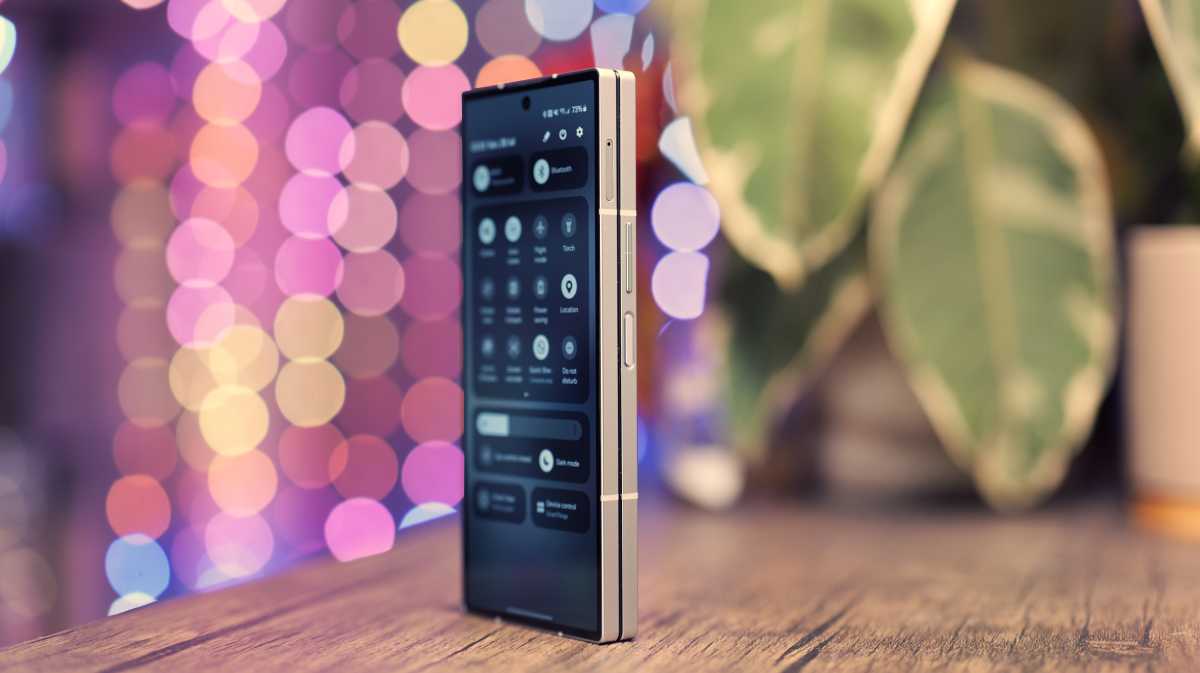
Luke Baker
When unfolded, the dimension change translates to a 2.6mm wider main screen, and the squared-off corners give you some extra real estate to work with. It’s not a massive change, but it’s noticeable.
The phone also gets a more matt finish on both the aluminium side rails and the rear panel, again matching the Galaxy S24 models. It’s a nice finish that feels extremely premium, and it’s a little less prone to fingerprint smudges than its shinier predecessors.
The cameras now have large black bezels around them, which is a purely aesthetic choice. I feel like it gives the phone a slightly cartoonish, playful look, but and I’m fond of it. They protrude quite far from the back panel, though, so you’ll notice a fair bit of wobble when it’s placed screen-up on a table.
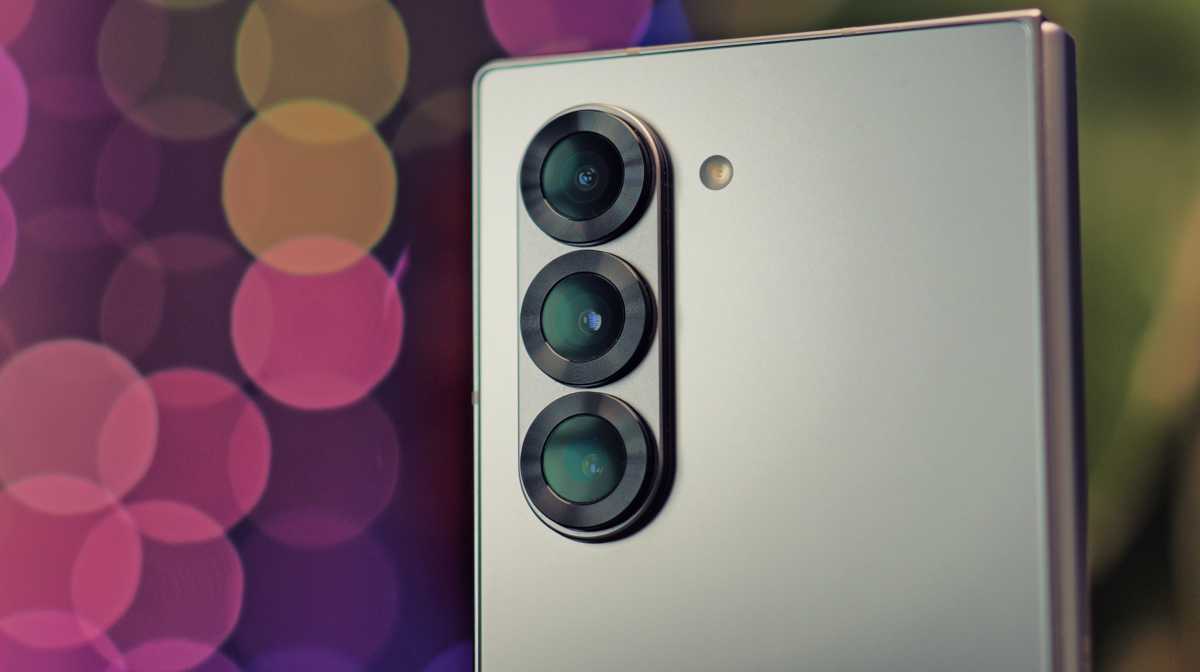
Luke Baker
Another big change is with the weight of the phone, it now comes in at 239g, which is 14g lighter than the Galaxy Z Fold 5. It’s also a little slimmer, now only 12.1mm thick, compared to 13.4mm. It’s a welcome change, but I must say, it feels very chunky compared to the likes of the 9.9mm Honor Magic V2, especially with the new boxy design.
I found it much easier to type on this newly-widened display
The Z Fold 6 is available in Silver Shadow, Pink and Navy options as standard, with Crafted Black and White versions exclusive to the Samsung website.
Interestingly, rather than creating a subtle black version, Samsung has opted for a faux carbon-fibre look on its Crafted Black model. It looks almost like it has a skin applied, and I’m not convinced it was the right move. Of course, that’s subjective, and I’m sure some will love it.
The Samsung Galaxy Z Fold 6 and its Z Flip 6 sibling both benefit from an IP48 rating. It’s the first time Samsung foldables have been rated for dust resistance, and it should give buyers some extra peace of mind.
This rating means it’s protected against particles that are 1mm-sized or larger, so it’s not fully dustproof, but it’s essentially waterproof, and can withstand being dunked in up to 1.5m of fresh water for up to 30 minutes.
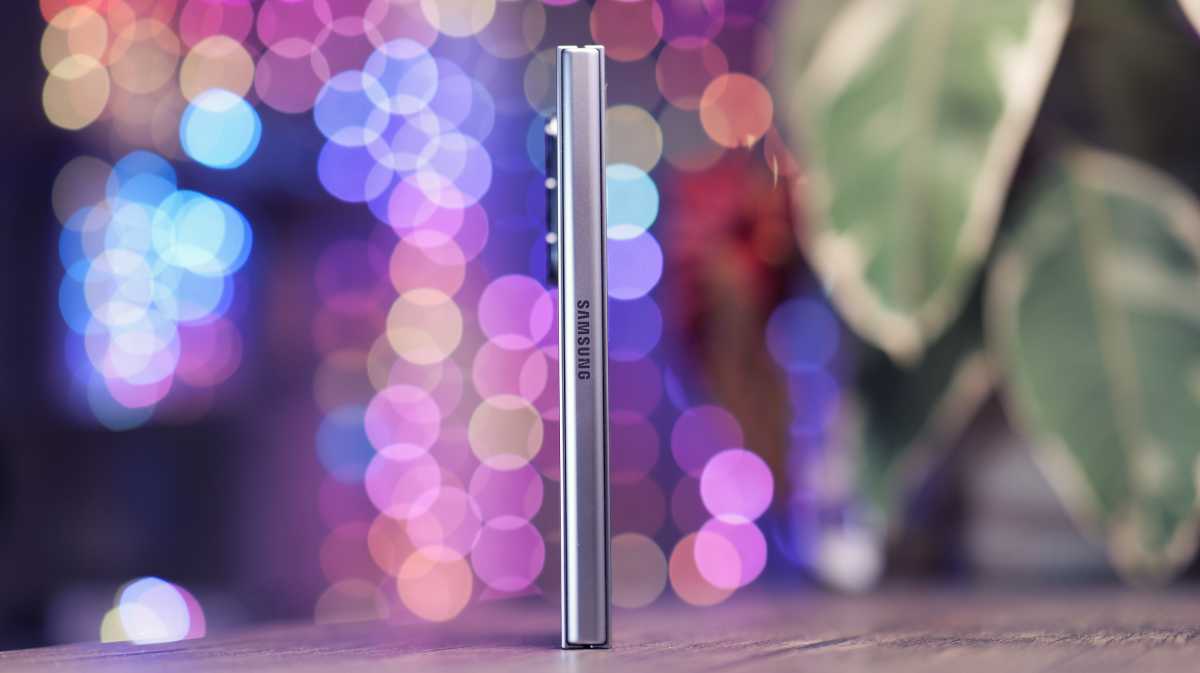
Luke Baker
The haptic feedback on this phone feels very similar to the Galaxy S24 Ultra, which means it’s some of the best on the market. You get a nice mechanical-feeling clunk when toggling settings, and feedback while typing is precise and powerful. It’s just about perfect.
Screen & Speakers
- 120Hz 6.3-inch OLED cover display
- 120Hz 7.6-inch OLED folding display
- Dual stereo speakers
I’ve already mentioned the change in screen dimensions, and of course, that means a slight change in panel resolution. The cover display now has a 968 x 2376 resolution, while the inside is 1856 x 2160 pixels.
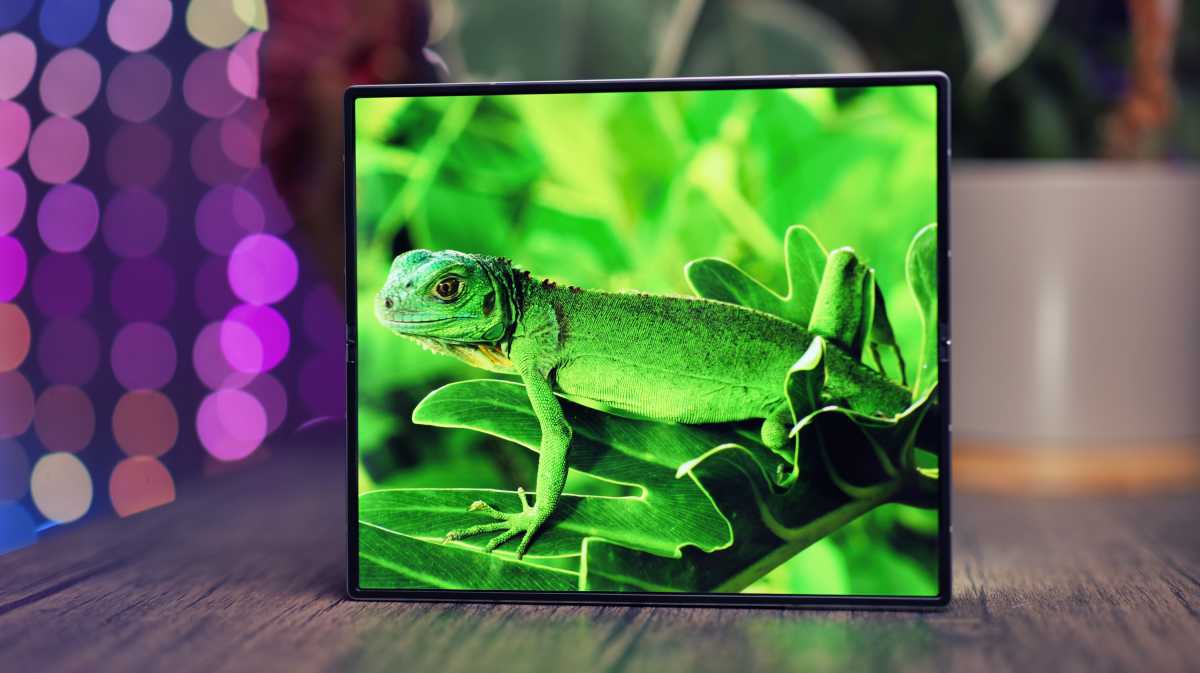
Luke Baker
In terms of pixel density, there’s no meaningful change – it’s just a slightly different form factor. What is different, though, is the maximum brightness. Both displays now peak at 2600 nits, compared to 1750 nits on the Z Fold 5.
Both displays are easy to see in direct sunlight, but I had a few occasions where the screen would automatically dim itself to keep the phone from overheating, despite adaptive brightness being disabled. It was on a hot day, by British standards, but it was frustrating, and my other foldable devices didn’t have this issue.
I had a few occasions where the screen would automatically dim itself to keep the phone from overheating, despite adaptive brightness being disabled
I was really hoping to see the lovely anti-reflective glass coating from the S24 Ultra make an appearance on this model, but it’s just a standard Gorilla Glass Victus 2 on the cover display. The foldable screen protector is still very shiny, so I wonder if this upgrade was omitted to make the experience of switching between displays less jarring.
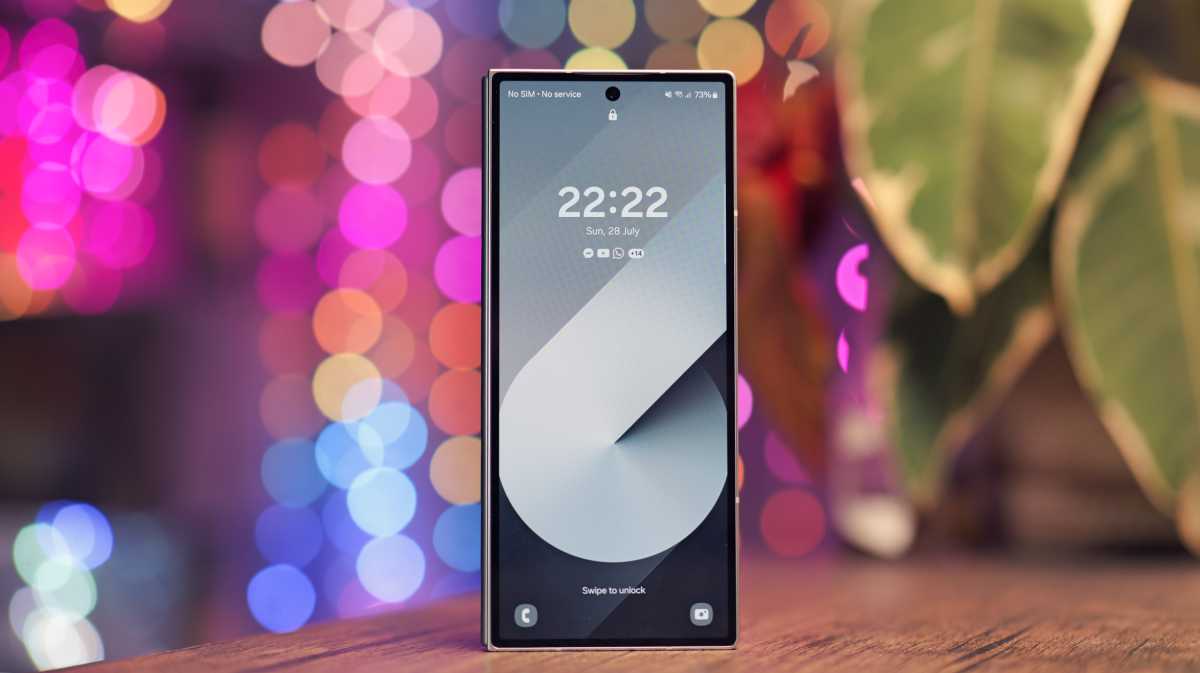
Luke Baker
The crease has apparently been reduced on this model, but it’s still pretty sizeable. You really feel it on your fingertips when swiping around on the main display and the shiny protector makes it all the more visible.
On the plus side, the folding screen feels harder than competing devices, so it’s likely more durable. Your fingers also glide across it more smoothly and fingerprint smudges are less visible. There are significant upsides to this style of display.
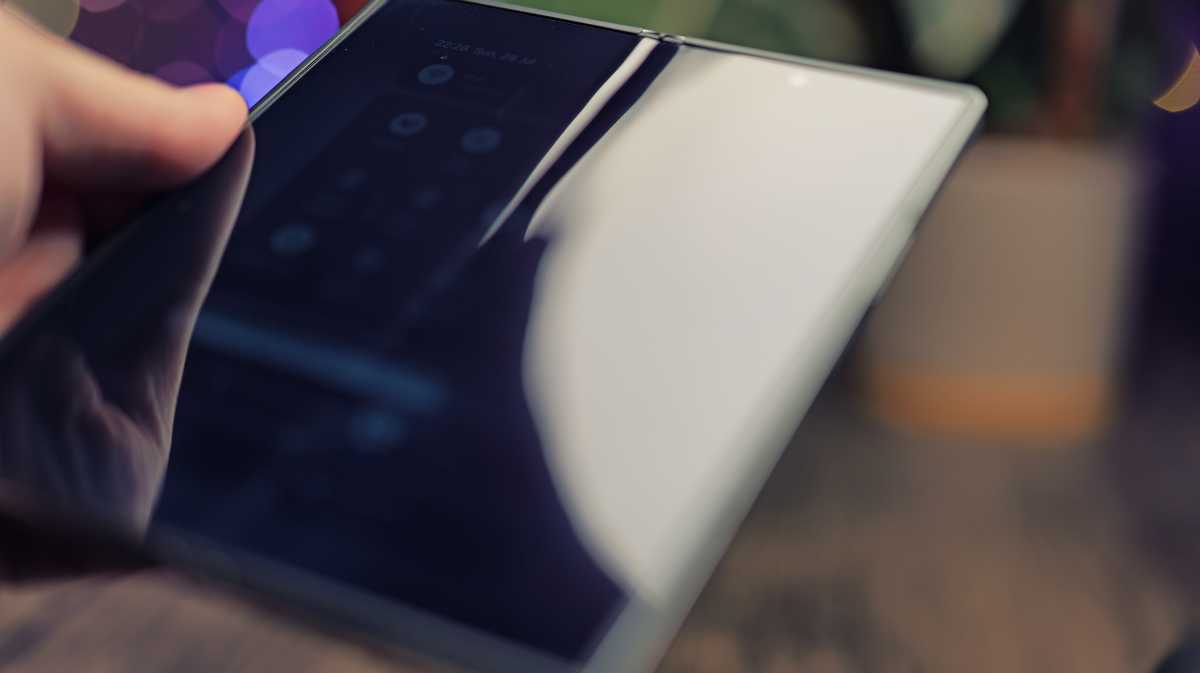
Luke Baker
Elsewhere, the display specs are identical to the previous generation. Both displays still have adaptive refresh rates from 1-120Hz (thanks to LTPO tech) and support HDR10+ playback. It’s also still the only foldable screen that works with Samsung’s S Pen stylus, though it’s still sold separately.
The speakers don’t seem to have been upgraded, but they’re still fantastic. They produce a nice stereo effect, firing from each side of the main display, with plenty of detail and a good bit of low-end response. They’re not the loudest around, though.
Specs & Performance
- Qualcomm Snapdragon 8 Gen 3
- 12GB RAM
- 256GB, 512GB or 1TB storage
The Samsung Galaxy Z Fold 6 is powered by Qualcomm’s top chip, the Snapdragon 8 Gen 3, and as usual, it’s a special “For Galaxy” edition. This essentially means it’s had a slight overclock applied, and might give marginally better results than the vanilla Gen 3 chip.
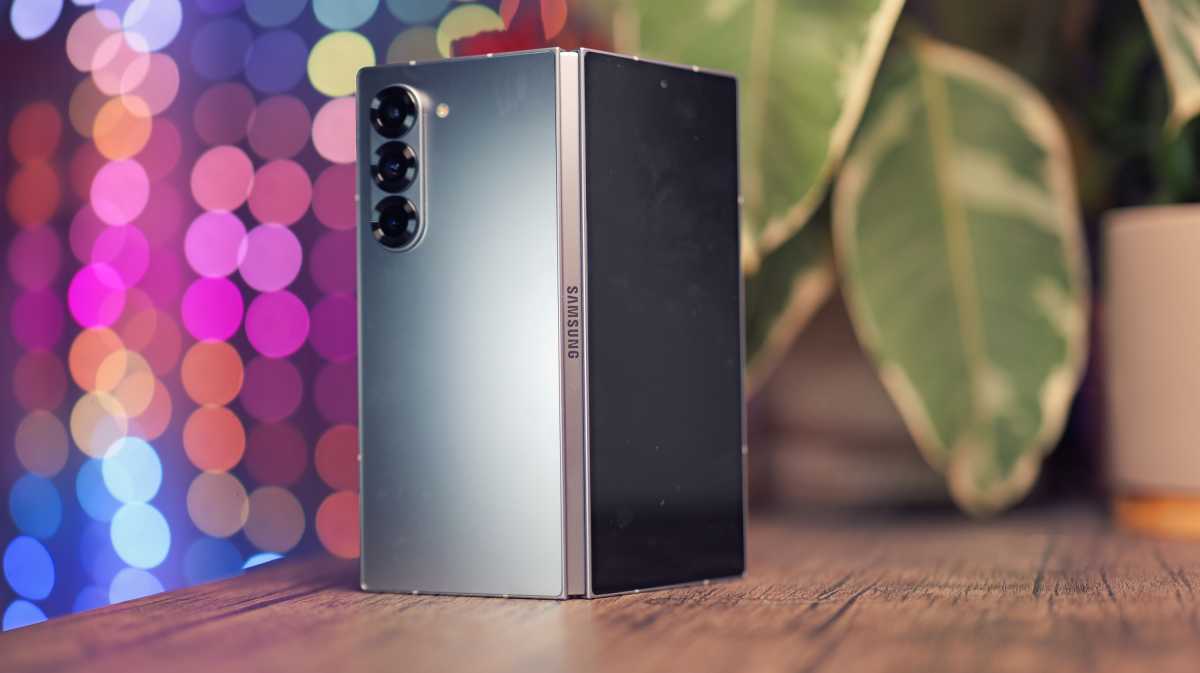
Luke Baker
The RAM and storage options are identical to the Z Fold 5 – you get 12GB of memory across the board and can select between 256GB, 512GB or 1TB of internal storage. There’s still no expandable storage.
To keep the device cool under load, the Z Fold 6 has a much larger vapour chamber than its predecessor. However, it still gets pretty toasty when you’re running a graphically demanding game. It’s not the worst in that department, but I wouldn’t say it’s the best, either.
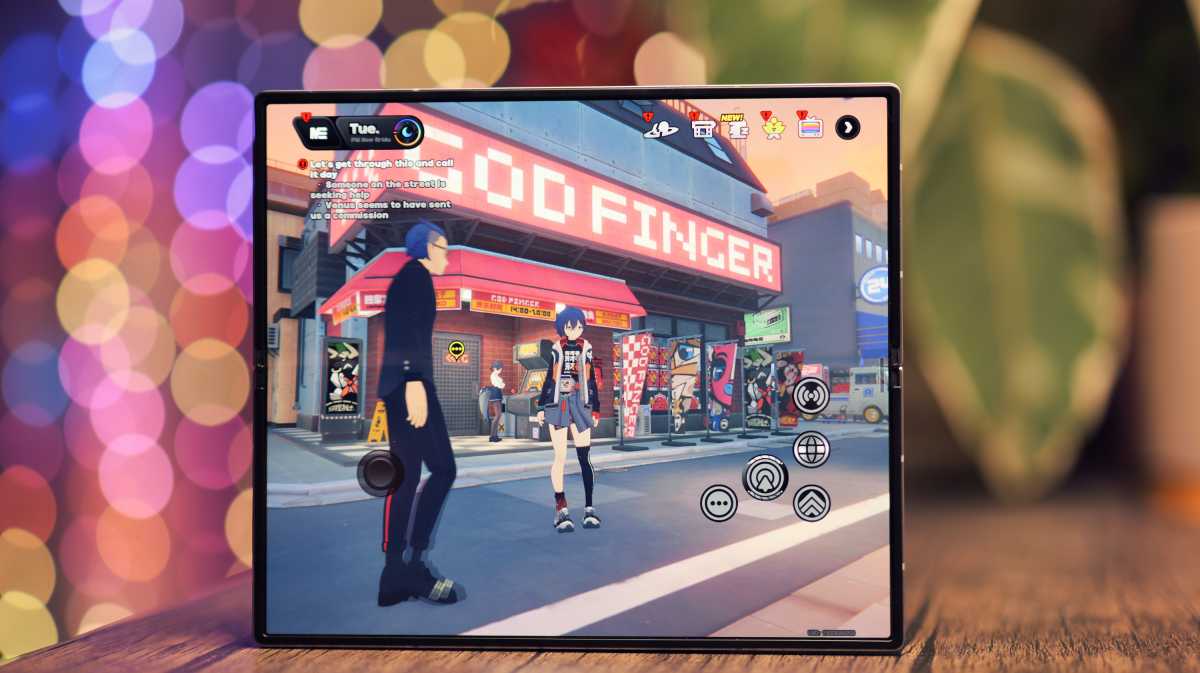
Luke Baker
With such a high-end chip, and a beefed-up cooling solution, it’s no surprise that the scores well in our usual benchmarks. The performance is just as good in real-world gaming, too. I was able to max out the settings in Zenless Zone Zero (shown above) and play for hours on the large display with no noticeable slowdowns or frame drops. It’s luxurious.
Day-to-day tasks feel extremely snappy and responsive, too. I’m not sure whether it’s clever optimisation of the OS or a trick of the animation style, but 2024 Samsung flagships just feel a touch quicker than most Android devices.
Samsung Galaxy Z Fold 6 benchmarks
Cameras
- 50Mp main sensor (1/1.56-inch)
- 10Mp 3x telephoto, 12Mp ultrawide
- 10Mp cover camera, 4Mp under-display camera
For the most part, the camera array on the Galaxy Z Fold 6 is identical to the Z Fold 5. Apparently, the 12Mp ultrawide is a brand new sensor, but it has the exact same specifications as the old one, and to be honest, I couldn’t really see any difference in my photos. There’s still no autofocus on this camera, which really limits its usefulness.
Considering this is one of the priciest phones on the market, the lack of innovation in the camera department is disappointing to see. That said, you’re not likely to be unhappy with photos from the Z Fold 6 – it’s capable of great results.
Photos from all lenses are very sharp and detailed, but they’re a little noisier than the competition
Samsung’s approach to image processing seems to have changed recently, the brand is known for its highly sharpened shots and vibrant colours, but just as I saw with the Galaxy S24 Ultra, images from the Fold 6 have a more natural look.
On the whole, I think it’s a change for the better, but it’s not always consistent. Occasionally, my photos looked a little dull, and sometimes grass would still be ridiculously green, but for the most part, the colours were lifelike and natural.
Photos from all lenses are very sharp and detailed, but they’re a little noisier than the competition, and it’s especially noticeable in low-light conditions. On the plus side, there’s rarely any motion blur at all.
The selfie camera configuration is unchanged, too, which means you get a 10Mp punch-hole camera on the front and a 4Mp under-display camera on the main screen.
The cover screen selfie camera is good, but it lacks autofocus compared to the S24 series phones. It’s helped by the fact that Samsung’s portrait mode effects are some of the most accurate and convincing on the market. Of course, you can always use the rear cameras to take a selfie, with this being a foldable. See my sample shots below.
The under-display camera is awful. It gets the job done for video calls, but you should definitely avoid snapping any pictures with it. Honestly, I wish Samsung would give up on this idea. The lower pixel density over the lens is just as distracting as a punch hole, and I don’t think it’s worth the trade-off.
Battery Life & Charging
- 4400mAh battery
- 25W wired charging, 15W wireless
- No charger included
The battery and charging specifications are also unchanged compared to the Z Fold 5. It’s another area that I was hoping to see an improvement, but regardless, the efficient design of the Snapdragon 8 Gen 3 chip give us some slight battery life gains.
In real-world use, the Z Fold 6 never failed to get me to the end of the day, but it sometimes cut it very fine. That was especially true when I was gaming on the large interior display or taking lots of photos and videos.
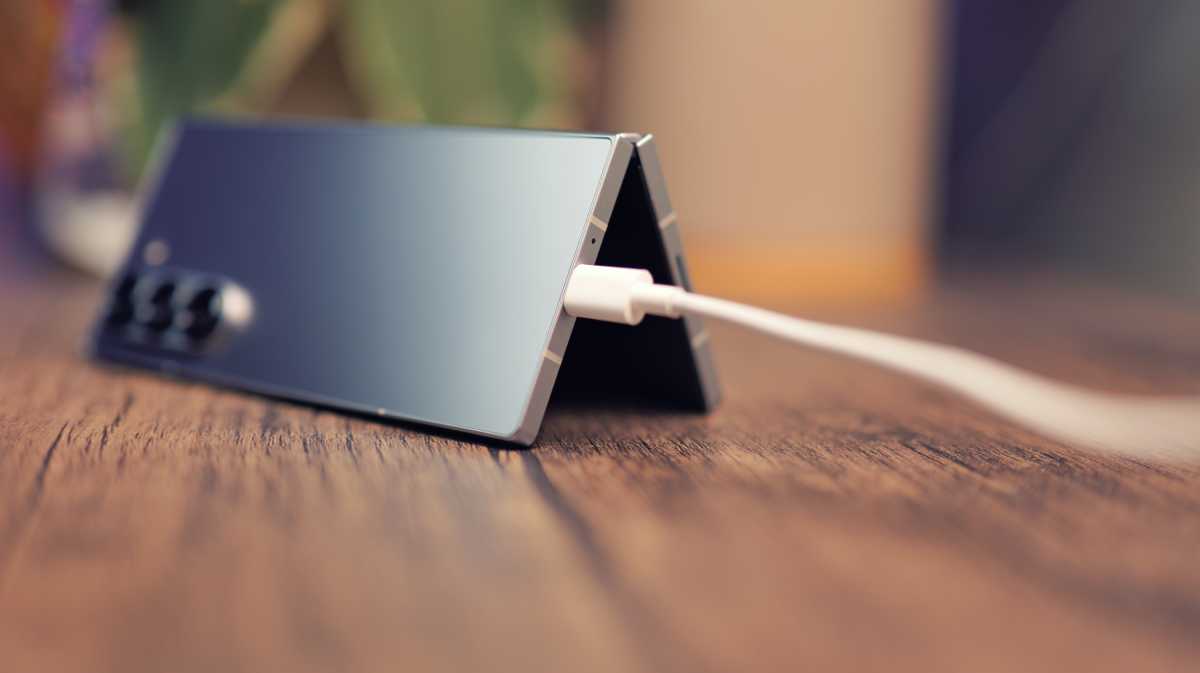
Luke Baker
As is often the case with Samsung phones, there’s no charger in the box, just a USB-C cable. With 25W wired charging, it’s not likely to wow you with its charging speed, but it’s quick enough to not be a major hassle. Half an hour on the charger will take the phone from completely dead to around 60% charged.
There’s wireless charging support, too, but again the 15W speeds are far from impressive. If you’re not in a rush, it’s very convenient to just leave it on a charging stand for a while and let it slowly do its thing.
And if you want to charge earbuds, there’s also reverse wireless charging at 4.5W.
Software & Apps
- One UI 6.1, based on Android 14
- New Galaxy AI features
- Lengthy support terms
The Galaxy Z Fold 6 runs Samsung’s One UI 6.1 software (based on Android 14), and if you’ve used a recent Samsung phone you’re sure to feel right at home here.
As I mentioned earlier, my favourite thing about this OS is how snappy and responsive it feels, but it’s absolutely loaded with features, too.
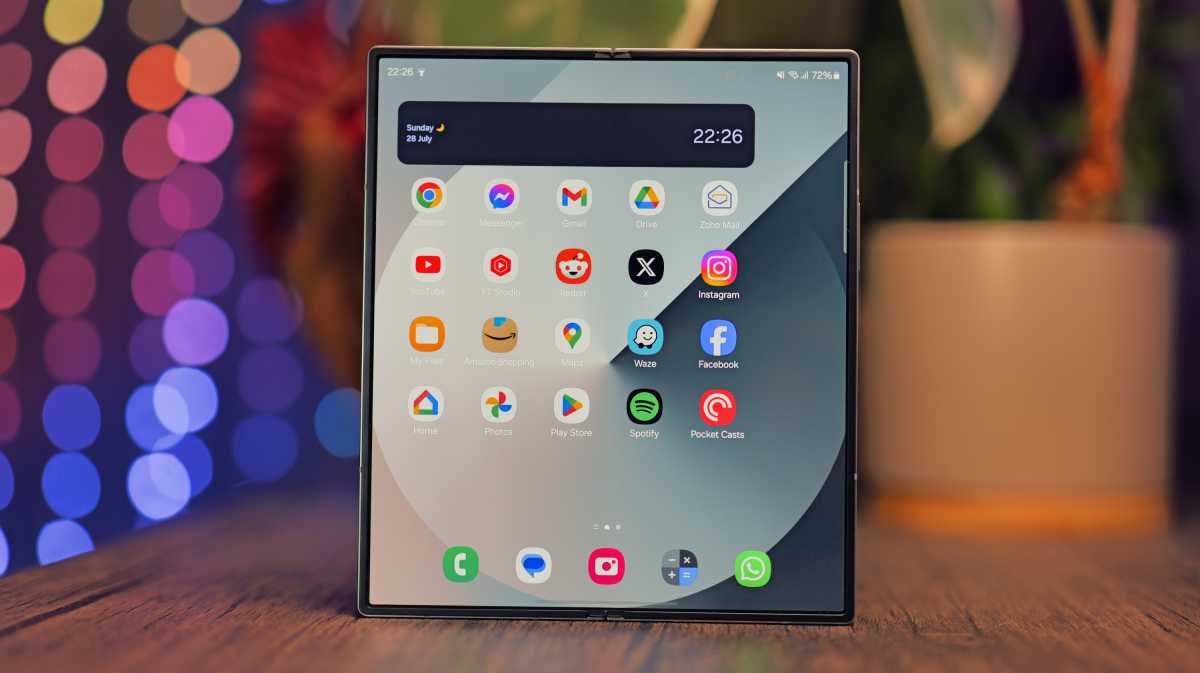
Luke Baker
My least favourite aspect is how cluttered it’s beginning to feel. There’s not any bloatware, as such, but Samsung has its own version of almost every Google app, and this means the system apps are effectively doubled on Samsung phones. It gets a little confusing if you’re not a die-hard Samsung fan.
The big focus this year is on Galaxy AI, we saw it with the Galaxy S24 series, and all the same features have now been implemented on the brand’s foldable devices. This time, though, additional optimisations have been made to make the most of the large format display, and there are a couple of brand-new features that are debuting with the Z Fold 6 and Z Flip 6.
The Samsung Interpreter app now lets you use both displays at the same time, so you can two-way-translate a conversation in real time
If you use the AI-powered summarisation features built into Samsung’s browser and recorder apps, they’ll now display in a side-by-side view when using the large foldable display. More excitingly, though, the Samsung Interpreter app now lets you use both displays at the same time, so you can two-way-translate a conversation in real time.
I was impressed to learn that the translation all happens on-device, too. That could save the day if you’re travelling with limited data – you’ll just need to remember to download the required languages beforehand, though.
The most interesting feature that Samsung has added to its AI arsenal this time around is called Sketch to Image. This allows you to draw a doodle, and then generative AI will provide you with a selection of stylised artworks based on your original drawing. It’s great fun, and it works on top of photos, so you can add an AI-generated hat to your selfie, for example.
Despite Samsung having the most robust set of AI features around, I just don’t find myself using them very often. I’m sure the translation stuff would be handy while travelling, but I also don’t feel that it adds much compared to just using the Google Translate app.
The one thing I do use a lot is Circle to Search with Google. It’s very simple – you just circle anything on your screen and it’ll quickly perform a reverse image search for whatever you’ve circled.
You can do the same thing with Google Lens, but there are a lot more steps involved, and this is so simple that I find myself using it all the time. However, it’s by no means exclusive to this device.
Beyond software features, another big selling point of Samsung phones is the length of the support term.
Indeed, just like the S24 series, the latest Galaxy Z foldables also benefit from 7 years of software upgrades and security patches. For reference, that takes you all the way to Android 21 in 2031, it’s a very impressive commitment, even if you’re unlikely to use the device for that long.
Price & Availability
The Samsung Galaxy Z Fold 6 is available to purchase globally now, and there are plenty of contact deals, too.
The phone received a pretty significant price hike across the board, in the UK, it starts at £1799, which is £50 more expensive than its predecessor. You can buy one outright from the likes of Samsung and Amazon, or on contract via the following.
It’s the same case in the US, where the phone now starts at $1899 – that’s $100 more than the Z Fold 5. It’s also available at Samsung, Amazon and several third-party retailers, plus a range of contract options.
These prices are for the base model, which comes with 12GB of RAM and 256GB of storage, but it’s also available in 512GB and 1TB flavours.
If you think the Z Fold 6 is the right phone for you, then check out our guide to the best Z Fold 6 deals. We cover everything from contract deals to outright purchases in both the UK and the US.
If you’re still undecided, then check how the competition compares with our guide to the best folding phones. The OnePlus Open and Google Pixel Fold are the main book-style alternatives, though the Honor Magic V2 is also worth considering if you’re based in the UK.
Should you buy the Samsung Galaxy Z Fold 6?
The Samsung Galaxy Z Fold 6 leaves me with mixed feelings. On one hand, it’s the best big-screen foldable that Samsung has produced to date. It has a level of polish that outclasses anything that came before it and it’s a delight to live with. The software experience and support terms are among the best around, too.
On the other hand, aside from a refined design, the hardware is largely unchanged from the Z Fold 5. When you combine that with a price hike, it starts to look less appealing. I certainly can’t imagine Z Fold 5 owners rushing to upgrade, and if you’re a savvy shopper, you might want to consider buying the older model instead.
The biggest improvements with this version are software-based, and Samsung has all but confirmed the Z Fold 4 and 5 will be getting the same features in a future update. So the only real advantages of this phone are the slightly wider cover display, brighter screens and the thinner, lighter design.
Competition from Chinese brands is really heating up, and we’re seeing plenty of models with larger displays, better camera specs and huge batteries – just look at the Xiaomi Mix Fold 4, for example.
The big advantage of the Samsung option lies in its availability and support. Most of the competition is hard to find in the UK and US, especially if you want a contract deal. None of them match Samsung’s seven years of software updates, either.
So, while the Samsung Galaxy Z Fold 6 might not be revolutionary, or overly exciting, it’s still the right choice for a lot of people. If you’re coming from a foldable that’s a few years older, or getting one for the first time, you won’t be disappointed. It’s a lovely phone that’s easy to live with.
Specs
- One UI 6.1, based on Android 14
- Cover: 6.3-inch, 2376×968, AMOLED, 120Hz
- Main: 7.6-inch, 2160×1856, AMOLED, 120Hz
- Side-mounted fingerprint sensor
- Qualcomm Snapdragon 8 Gen 3
- 12GB RAM
- 256GB storage
- Cameras:
- 50Mp main sensor
- 12Mp ultrawide
- 10Mp 3x telephoto
- 10Mp cover camera
- 4Mp under-display camera
- Up to 4K @ 60 / 120fps rear video
- Stereo speakers
- Dual-SIM + eSIM
- Wi-Fi 802.11 a/b/g/n/ac/ax
- Bluetooth 5.3
- 4400mAh battery
- 25W wired charging
- 15W wireless charging
- 153.5 x 68.1 x 12.1 mm (folded)
- IP48 certified
- 239g
- Colours: Silver Shadow, Pink, Navy
- Samsung exclusive colours: Crafted Black, White

